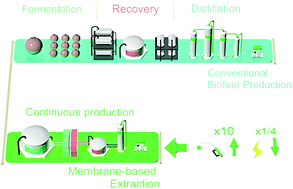(New solvent-based recycling process could cut down on millions of tons of plastic waste)
2020/11/20 アメリカ合衆国・ウィスコンシン大学マディソン校(UWMadison)

・ UW-Madison が、プラスチック複合フィルムから単一のポリマー材料を再生する溶剤ベースのプロセス、Solvent-targeted Recovery and Precipitation (STRAP)技術を開発。
・ プラスチック複合フィルムは、食品や医療用品等を湿気、日光や酸素から効果的に保護するパッケージングに使用されているが、フィルムに含まれる各種プラスチックのリサイクルは従来技術では不可能となっている。
・ それぞれが最多で 12 層の多様なポリマーで構成される熱可塑性プラスチック複合フィルムは、世界で毎年約 1 億トンが生産されている。そのうちの 40%をパッケージング製造プロセス自体からの廃棄物が占めるが、それらの多層ポリマーを分離する方法が無く、ほとんどが埋め立てや焼却で処理されている。
・ STRAP プロセスでは、ポリマーの溶解性の熱力学計算に基づいた一連の溶剤洗浄により、市販のプラスチックのポリマーを、ポリエチレン(PE)、エチレンビニルアルコール(EVOH)およびポリエチレンテレフタレート(PET)の 3 種類の代表的なポリマーに分離する。
・ 分離したこれらのポリマーは、元の複合フィルムを構成するポリマーと同様の化学組成を有する。これらのポリマーを使用して新たにプラスチック材料を製造することで、循環型リサイクルでの STRAP プロセスの貢献を実証したいと考える。
・ 特にプラスチック複合フィルム製造業において、製造・パッケージングプロセスでの 40%のプラスチック廃棄物回収の可能性が期待できる。ただし、今回の実証は 1 種類の複合フィルムのみのため、他の種類での実験とプロセスのスケールアップが必要。
・ 複合フィルムの構成が複雑化するほど各ポリマーの溶剤の特定が困難となる問題を、Conductorlike Screening Model for Realistic Solvents (COSMO-RS)によるアプローチで解決。様々な温度下の溶剤混合液中のターゲットポリマーの溶解性を計算し、ポリマー溶解に最も期待できる溶剤数を絞り込んだ後、候補の溶剤の試験を実施する。
・ 最終的な目的は、あらゆる種類のプラスチック複合フィルムをリサイクルする溶剤の組合せを特定するコンピューティングシステムの開発。また、溶剤による環境への影響を調査した結果から、溶剤システムの効果、コストと環境負荷のバランスがとれたグリーン溶媒のデータベースを構築したいと考える。
・ 米国エネルギー省(DOE)の 1,250 万ドルの資金による新設の Multi-University Center on Chemical
Upcycling of Waste Plastics にて STRAP プロセスの研究を継続して実施する。本研究は、DOE のグラントが支援した。
URL: https://news.wisc.edu/new-solvent-based-recycling-process-could-cut-down-on-millionsof-tons-of-plastic-waste/
<NEDO海外技術情報より>
(関連情報)
Science Advances 掲載論文(フルテキスト)
Recycling of multilayer plastic packaging materials by solvent-targeted recovery and precipitation
URL: https://advances.sciencemag.org/content/6/47/eaba7599
Abstract
Many plastic packaging materials manufactured today are composites made of distinct polymer layers (i.e., multilayer films). Billions of pounds of these multilayer films are produced annually, but manufacturing inefficiencies result in large, corresponding postindustrial waste streams. Although relatively clean (as opposed to municipal wastes) and of near-constant composition, no commercially practiced technologies exist to fully deconstruct postindustrial multilayer film wastes into pure, recyclable polymers. Here, we demonstrate a unique strategy we call solvent-targeted recovery and precipitation (STRAP) to deconstruct multilayer films into their constituent resins using a series of solvent washes that are guided by thermodynamic calculations of polymer solubility. We show that the STRAP process is able to separate three representative polymers (polyethylene, ethylene vinyl alcohol, and polyethylene terephthalate) from a commercially available multilayer film with nearly 100% material efficiency, affording recyclable resins that are cost-competitive with the corresponding virgin materials.



